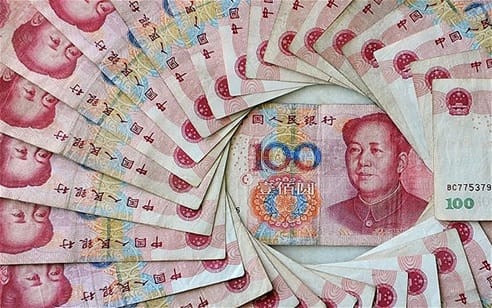As China reopens for business after the Spring Festival, its financial system is coming under strain. Recently, the government stepped in to rescue the “Credit Equals Gold #1” trust product, which was due to pay out US$495 million ahead of the holiday season. The fund, which was issued by China Credit Trust to customers of the Industrial and Commercial Bank of China (ICBC), had been loaned to a coal mining company from Shanxi province.
The fund’s woes are indicative of the problems coming from China’s shadow banking sector, which developed out of Beijing’s response to the global financial crisis. The government told Chinese banks to lend aggressively to industries and local governments, and shadow banking developed in order to skirt the regulations governing the banks’ lending practices.
Investors still expect the government to step in to bail out poor performers. The government owns all banks in China, meaning that if one was to get in dire trouble, the government cannot allow it to go bust for fear of causing a ripple effect. However, this creates a moral hazard problem, as financial companies are willing to take huge risks, confident that the government will rescue them.
Change in government, but not in policy
China’s financial woes coincide with Xi Jinping’s consolidation of power. While handing out bad loans, there was likely some level of corruption and lack of oversight. It will therefore be interesting to watch Beijing’s response, in light of Xi’s anti-corruption campaigns. Beijing may choose to publicly show “tough love” by punishing errant lenders, in keeping with the new anti-corruption policy.
The government may choose to clamp down on the banking sector by issuing and enforcing new regulations. However, Beijing will not allow the banks to fail, and will continue to shore them up. China’s moral hazard problem will therefore continue, regardless of changes in government.
Source:
When will Beijing’s Trust Bailouts End? – [Reuters, January 29, 2014]




